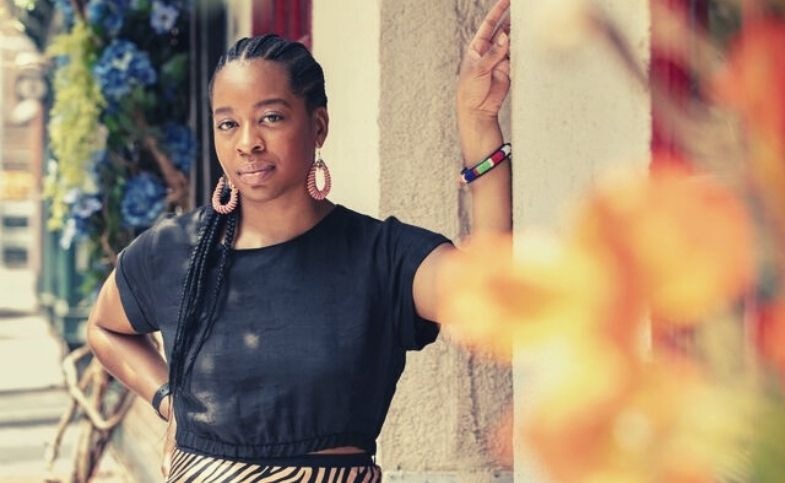The topic of celebrity and influencer beauty brands, covering topics such as the proliferation of these firms, the reasons why some succeed where others fail, and the relative merits of various product lines have been written extensively. The reasons why certain well-known entrepreneurs’ emissions were identified several of these companies’ flops. Time marketing, product and distribution methods, and the many ways that celebrities give their brands life were all carefully dissected by me.
Considering the events of the past week, this is an especially timely discussion. Six days apart, on June 21 and July 3, respectively, two of the most anticipated celebrity skincare lines of the year will launch: Hailey Bieber’s Rhode on Wednesday and Kim Kardashian West’s SKKN by Kim. Unlike Kardashian, who is releasing a nine-product routine that reportedly includes a $85 moisturizer and $95 serums, Bieber, who is only 25, uses three items that cost less than $30 to get started.
A strong emotional reaction is inevitable when a star announces she is establishing a beauty line, as Kardashian did two weeks ago to build anticipation ahead of next week’s launch. All of us have been reluctantly or enthusiastically indoctrinated into these endeavors. Popular actors and actresses usually choose for the later (although many will happily take the former). I spoke with both Kardashian and Bieber in the days before their respective releases, and they both acknowledged the terrible celebrity endorsement that occurs when a famous person puts their name on an improper product. (Tomorrow also sees the release of Ariana Grande’s “Chapter 3” makeup line.)
I’d like to have a controlling stake in the company. For a long period, I was a brand ambassador, lending my likeness and name to many products. “I don’t want to do it again,” Bieber said to me. I wouldn’t trust an incubator to advise me how to make my items or establish my brand because I’m too particular and deliberate.
What sets the Bieber and Kardashian brands apart from the countless other cosmetics labels, fresh releases, and partnerships that appear on the market every day? Whether a celebrity endorses the product or not, most cosmetics and skincare lines fail. Competition in the market is intense, and consumer expectations are higher than ever.
And yet, despite the growing backlash against celebrity-endorsed beauty products, we still can’t help but take a peek. What gives Bieber and Kardashian the confidence that they can make it big?
The American Way
Our parents and teachers instilled in us the belief that all we needed to achieve the American dream was hard effort and a good idea. Alternatively, “get your goddamn ass off and work,” as Kardashian phrased it not too long ago.
The immediate nature of capitalizing on this newfound popularity through beauty has led to a backlash as the distinction between celebrity and ordinary person blurs or the time it takes for an ordinary person to become an influencer or star decreases.
People have reacted to this reality celebrity from Gen Z’s launch of a baby line with a wide spectrum of emotions, from astonishment (“What does this teenage actress know about skin care?”) to disdain (“Is it really necessary for this reality star to Gen Z started a baby line?”) to outright contempt. There is a lot of pushback when a famous person or influential figure causes a lot of controversy. Although there will always be an eager audience for a musician’s new perfume, we tend to be cynical about such endeavors. Or perhaps the public despises the fact that renowned people already have a label and a following.
Both Rod and SKKN take different techniques to resolving this issue. Both Bieber and Kardashian claim that their skincare lines accurately reflect their personal styles, with the former being more minimalist and the latter more bombastic.
Great skin doesn’t require a million-dollar regimen. The rule of thumb is that less effort usually yields better results. Bieber said, “I truly wanted to have those cut stages, those edited products. Complexity and difficulty put me off. What I really need is hassle-free. What I need is simplicity. I’m trying to be practical here. She is excited to shop for skin care products online and experience “how there are a hundred things to choose from, and you just feel lost” because she is a fan of “fewer steps, fewer products.”
Then there’s Kardashian, who has a nine-step routine she says always works. She recognizes that something is “not quite natural” about her appearance.
Even though “everyone was saying it was amazing” and “there were a lot of products” and “[most] people launched three or four products,” Kardashian added, “I really wanted to just stay true to what I was using.”
A Strong Cocktail
When selling skin care products, where consumer trust is more difficult to earn than with cosmetics, even a celebrity’s stamp of approval on the product’s legitimacy may not be enough to ensure sales. (Most successful celebrity beauty lines, Rihanna Fenty Beauty and Selena Gomez’s Rare Beauty, both of which largely offer cosmetics.) A celebrity’s name attached to a product can increase initial interest and sales, but ultimately, the quality of the product itself is what will ensure continued use and loyalty.
The combination of a well-known creator and a successful product is like a potent elixir.
The belief or “why” of both being stronger will be the key to grabbing clients, according to the president of a big talent agency that works on celebrity brand partnerships (and doesn’t personally work with Bieber or Kardashian). Rather than trying to persuade their fans that their product is the finest toner or serum, Bieber and Kardashian are selling them on their whole philosophy and goal for skincare. Customers can either believe that “More is more” like the Kardashians or they can be won over by Bieber’s straightforward approach.
You “could easily bet that Hailey, because of what she advocates and because she wears less makeup, it could translate better,” said the guy if the two products were to go head-to-head in the skincare market.
Although they position themselves differently, what both products have in common, aside from the muted gray packaging, is that neither Bieber nor Kardashian defined their brands to me as “clean” or “non-toxic “. They used words like “effective,” “beautiful hydration,” “lifetime glow,” and so on to describe their products, but they never emphasized the ingredients they lacked or that they were “free.” It was refreshing to speak with someone who didn’t insist on listing all the ingredients that should never be found in skincare products.
Rod and SKKN don’t directly compete with one another. In spite of this, Bieber may discover that success comes more readily for her because she is the perfect example of the minimalist beauty and skin care she promotes. Bieber is well-liked and rarely causes controversy; he has also frequently discussed his personal beauty regimen and skincare products. The price is right, too; at $29, her moisturizer is a third cheaper than Kardashian’s. However, she is only 25, has flawless skin, and it is uncertain whether anyone older than 25 would desire skin care guidance from a genetically blessed Gen Z-er.
Just as your personality and reputation shape how people see you in the marketplace, so too do celebrities. People either have to like Bieber or Kardashian to buy their makeup or skin care, or they have to desperately want to emulate them. The goods’ viability as standalone offerings will be determined subsequently.












